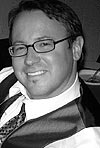|
We have all had visions of mastery, whether it be our livelihood or some external talent. For years I dreamed of mastering the piano. But that's about all I did - dreamed. I dreaded the inevitable failure of sitting down to practice and ending up frustrated. Then I read two books and everything changed.
Those books are Effortless Mastery by Ken Werner, and Mastery by Robert Green. Werner approaches the topic from the perspective of a jazz pianist, Green from the lessons learned while studying a martial art.
There are many valuable lessons and takeaways to be gleaned from these books. They are both available on Amazon, and I have no affiliation except I am a fan. For me, there were two key concepts that revolutionized my sometimes frenetic thinking about my career and hobbies, and I will share those with you now.
Werner spends a lot of time setting up the idea of playing from "the space". This is somewhat of a Zen state in which the consciousness of self disappears, and we learn to approach the instrument without self expectations and play "what wants to come out". We also learn to visualize ourselves playing like a master performer. Perhaps we learn most importantly what mastery looks like: mastered material is effortless. We become only the conduit, and the music plays itself though us. I sometimes imagine that when I have mastered a piece, it has modified the neurons of my spinal cord so that all the finger movement comes from a place at the brain stem or below, and conscious thinking about the performance of the song is no longer necessary. I don't know if this is exactly what is happening, but it feels the same as reacting to a hot stove or seeing a snake in the grass - the body reacts at the spinal cord level before the frontal cortex has had time to process the visual input and formulate a thought about what is being seen or felt.
The main takeaway for me from the Green work is to "learn to love the plateau". This used to be very frustrating for me. I would spend hours practicing and not getting any better. I would give up for some time out of frustration and then lose what I had gained. I felt like I would never be a good player, manager, engineer, parent, whatever. But, somehow I had missed the important idea of learning to love practice time whether I made gains or not. Again, we see a Zen aspect of coming to terms with selflessness and ego. Turns out, the most important thing was just to show up everyday and go through the motions. Eventually, if we do this enough, we will see a ratchet, or step up, in our ability to perform the exercise. Simultaneously, we are humbled by those who have passed down the path before us.
Now, I should state, that I do not consider myself at this time anything close to having achieved mastery of the piano. What I did do is make peace with the steady progress I have been able to make. I have learned most all the jazz chords, worked though volumes of standards, been asked to play with the local college jazz band, and developed my sight reading to the point I can keep up with most. I would say the best part is I have made peace with performance anxiety (I'm better at forgetting myself and playing from "the space") and really have come to enjoy working on new songs and developing my solo technique and overall playing style. I'm no longer a frustrated dreamer, but a motivated "doer". I enjoy playing for and with friends and family, and mistakes are not something that makes me self conscious. In other words, I play for fun - like a child again - and it feels great!
Of course, one can apply these two, key, general principles to any pursuit. I suggest you try adapting them to your work life to see if you can get any benefit. Lose your desire to be great and just focus on showing up and getting into the head space to perform your job effortlessly and master the simple exercises life gives you each day. You may find that success finds you more easily when you relax and approach life from these two convergent perspectives!
 |
"Project management is my life. I love what I do!"
I will measurably enhance your project budgets and solve the biggest problems on your plate with real-world efficiency gains by empowering others and applying over 23 years of strategic and critical decision making experience.
|
|